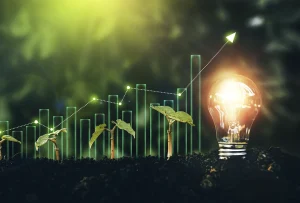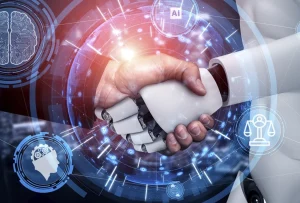Respect for diversity and inclusion actions in the LGBTQIAP+ community are the flags of LGBTI+Amor, one of the five committees that make up Pólen, a set of discussion groups formed by iFood employees (or FoodLovers) — the others are aimed at women, black people, people with disabilities and the body free.
Created in 2018, LGBTI+Amor already brings together more than 400 FoodLovers in the discussion group — and makes their ideas also reach heterosexual leaders and employees. “It is important that allied people understand that the responsibility for change is also in their hands”, says Alexandre Oliveira, 25 years old, commercial efficiency coordinator at iFood and leader of LGBTI+Amor.
In an interview with iFood News, he explains how the committee works to open dialogue on LGBTQIAP+ topics, provide more support for this community in the company and involve FoodLovers in creating a better environment for everyone.
iFN – How did Pollen come about?
Alexandre – Pólen was born in 2018 as an initiative by FoodLovers and with the purpose of being a meeting point to talk about topics such as the presence of women in leadership, the LGBTI+ cause, racism and other issues that permeate our experience. Next came the discussion groups on people with disabilities and the free body.
Our first meeting was at the time of the office move, when iFood moved to Osasco. The first step of the LGBTI+ Amor committee was to talk about our experiences and what would make sense to have in a diversity and inclusion agenda.
Over the years, Pólen has evolved to play a more strategic role in the company's decision-making by collecting people's pain and taking it in an organized way to leaders, to draw up action plans.
iFN – How does the LGBTI+Amor committee work?
Alexandre – The committee’s objective is to strengthen a network in the LGBTI+ community within iFood and take our insights for the diversity and inclusion team to create action plans. We want people's voices to be brought to leadership in an organized and structured way.
To this end, we hold biweekly meetings with a lot of active listening to have a clearer understanding of what the pains of LGBTI+ FoodLovers are, what their experience is like in the company, what their needs are. And also to share our experiences, tell our stories and thus solidify our network as a safe space for people to feel increasingly open to talking.
In 2020, iFood's diversity and inclusion agenda became stronger, with more discussions about structural changes and a concern to bring diversity to all points of the FoodLovers' journey, such as hiring and retention.
iFN – Today, what are the most important topics for the committee?
Alexandre – Since 2020, iFood has had a large volume of hiring trans people, and we have also seen many people transitioning. So the experience of trans people is a key point for us.
Therefore, the committee mapped the main pain points in a trans person's journey and where we can improve in partnership with the diversity and inclusion team. Today, we have a three-pronged plan, involving work experience, career development and health benefits.
Some of the initiatives in this regard were to promote a dialogue between people who are going to make the transition and their teams, offer specific mentoring, understand how to support the search for surgical or non-surgical procedures and prepare our team of psychologists to serve these FoodLovers. Today, iFood offers assistance of R$ 3,000 per year to help with documentation, medication, legal and psychological support for those transitioning gender.
Another important issue for the committee today is to form ambassadors in each team, so that people can run initiatives autonomously, within a strategic direction, so that we have more initiatives and projects.
There is also an agenda of actions with people who are not part of the LGBTI+ community, who we call allies, so that they understand the basic concepts, such as what gender identity and sexual orientation are, and how they can create a more safe for this community.
iFN – Why is it important to bring themes from the LGBTI+ community to heterosexual people?
Alexandre – It is important that allied people understand that the responsibility for change is also in their hands. Building a diverse environment is everyone’s responsibility.
When faced with a situation of discrimination, if you do not take a stand, you are on the side of the person who is attacking you. We talk a lot about the role of heterosexual people as allies and how important it is that they don't think that they don't need to take a stand in a situation of violence against the LGBTI+ community because they are not part of it.
If this person is in a leadership position or in a prominent position, they have a voice and can speak in defense of those who do not. We will not have significant changes if people in positions of privilege do not act in favor of disenfranchised people. Doing nothing is making the wheel spin as it always has.
But, as heterosexual people do not have a natural identification with the subject, they need to be encouraged to reflect on this: if the environment is already safe for me, why not make it safe for other people too, so that everyone grows in the same way? proportion?
It's not enough to think that you're not a homophobic, transphobic person. It is necessary to be a person who actively combats these discriminations. With a safer and more conducive environment for the development of these powers, we can increase iFood's goals of having more black people and women in leadership positions and perhaps, in the future, have a goal of trans people in these spaces.
iFN – What is LGBTI+Amor’s big dream for the future?
Alexandre – For me, it’s at some point looking at the leadership board and seeing a black trans woman leading a technology front, you know? It would be the materialization of years of work, which would put the speech into practice.
I think we've evolved a lot, but I'm even more excited about what we can do. There is a long road ahead, and the starting point always changes, it is always one level above the previous objective.
Diversity and inclusion are topics that need to be constantly in motion. We can't stop and think that what we have achieved will last forever. Society changes quickly, so we need to be agile and persistent and constantly look for where we can evolve and improve. It is important for us to feel good, but with a little positive dissatisfaction, which signals power and structuring changes for the future.


